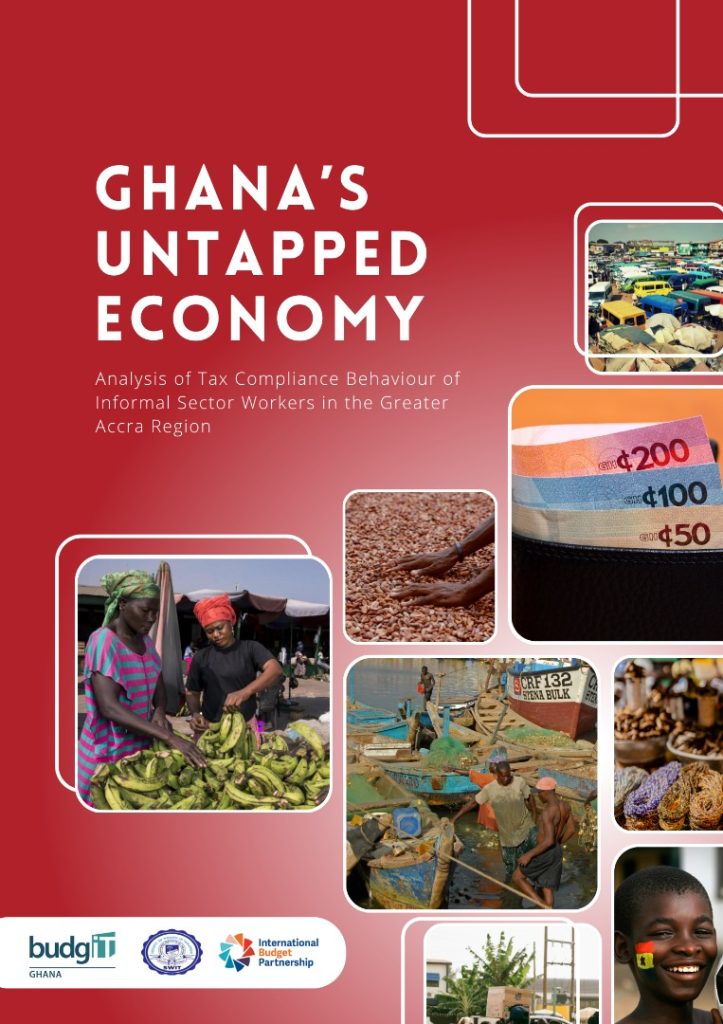This report presents the validated findings from the project, “Analysis of Tax Compliance Behaviour of Informal Sector Workers in the Greater Accra Region”, commissioned by BudgIT Ghana with support from the International Budget Partnership (IBP). The research examines tax compliance patterns, challenges, and opportunities within Ghana’s informal economy, with a specific focus on the Greater Accra Region. It combines extensive qualitative and quantitative research methods, incorporating stakeholder validation to ensure relevance, accuracy, and policy responsiveness.
The study adopts a sequential exploratory mixed-methods design. Phase one involved nine Focus Group Discussions (FGDs) across retail, hospitality, and creative/manufacturing sectors, providing contextual insights into tax awareness, gendered experiences, and compliance behaviour. Phase two involved a cross-sectional survey of 500 informal sector workers across four geographical zones, offering quantifiable data on tax compliance levels, sectoral and gender variations, and barriers to compliance.
The findings underscore that Ghana’s informal sector is not inherently tax-averse. While tax awareness exists, it is often fragmented and conflated with municipal levies or market tolls. Compliance is largely reactive and driven by fear of sanctions rather than civic duty or systematic processes. A significant gender dimension emerges: women, who dominate the sector, face disproportionate enforcement, bear higher indirect tax burdens, and report gender insensitive treatment from tax officers. Despite their central economic role, 67% of businesses remain unregistered, and formal tax filing is rare. Survey results reveal moderate overall tax compliance (mean = 3.70/7), low current compliance behaviour (mean = 3.18), but promising future compliance intentions (mean = 4.49). Gender differences in compliance were statistically insignificant, yet female respondents identified unique challenges such as unstable income and high compliance costs. Sectoral analysis shows the retail sector expressing a higher intent to comply in the future, suggesting sector-specific opportunities for intervention.
Major barriers to compliance include perceived mismanagement of tax revenues, corruption among officials, lack of tangible public benefits, complexity of the tax system, and limited record-keeping capacity. These perceptions fuel distrust and reduce the incentive to formalize. Additionally, 20 ranked compliance barriers revealed strong agreement among respondents—with over 60% strongly agreeing that corruption and lack of visible benefits are significant deterrents.
The final stakeholder validation workshop affirmed the study’s conclusions and enriched the policy direction with actionable recommendations. Participants, including representatives from the Ghana Revenue Authority, Ministry of Finance, MMDAs, CSOs, academia, and informal sector associations, called for reforms that are inclusive, gender-responsive, and digitally enabled.
